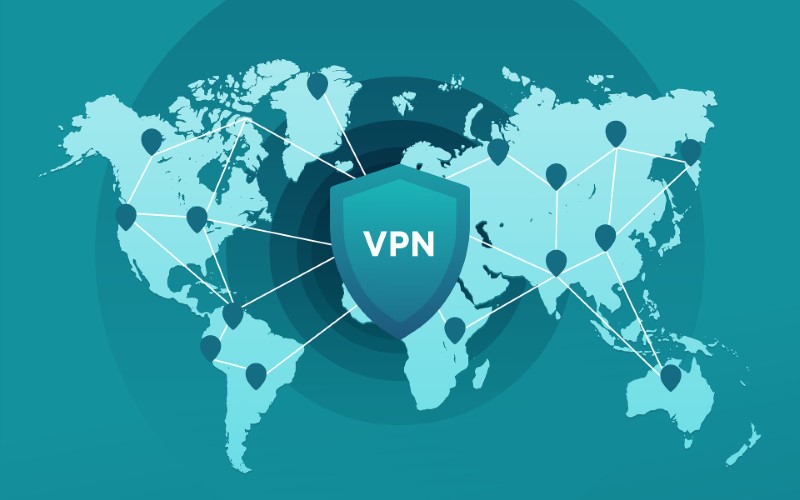What Are the Safety Rules in The Internet World?

The internet makes limitless exploration a possibility. You can effortlessly move from one geographical location to another without leaving your room. You can also achieve a lot in your academics through online courses, work remotely, access a ton of information within minutes, and many other possibilities we’re confident you already know.
However, the internet can also be a scary place – for adults and kids alike. It’s becoming easy for anyone with tech-savvy skills to look in on you and your internet footprints.
Unfortunately, we cannot ignore growing internet issues such as cyberbullying.
According to reliable studies, 59% of teens in the U.S. have been victims of cyberbullying at one point or the other. Of course, there are other internet-related challenges like stalking, invasion of privacy, theft, and hacking. People lose their life savings to hackers because of oversharing, weak passwords, and even phishing schemes.
Just as the internet makes it possible for these downsides to occur, there are also several preventive measures, and we’re bringing them to your screen. In this blog post, we’ll explore five different safety rules in the internet world. Let’s get started!
1. Use a Reliable VPN
When internet service providers or ISPs give you access to the internet, they allocate your device its unique IP address. ISPs can use this address to track your activities, location, and internet history. They can make money from this information by feeding it to advertising agencies, websites, apps, and the government.
Other unauthorized entities that can access your internet activities, location, and footprints are public Wi-Fi service providers, social media hubs, and anyone with access skills.
Now, a large percentage of these trackers may not mean to hurt you. However, if your private information falls into the wrong hands, you may be at a financial or physical risk.
As such, it’s best to use a reliable VPN service for different needs. Aside from protecting your online personality and keeping you anonymous, it also helps you defeat geographical restrictions for websites, film hubs, and other content not available to your region.
Alternatively, you can opt for ethernet services instead of Wi-Fi as they’re more secure, faster, and more favorable in terms of latency.
2. Use Strong Passwords
The strength of your password determines the level of random accessibility to your online and offline accounts. Some passwords are pretty easy to guess, particularly when you use dictionary words, birthdays or anniversaries of people and activities significant to you, or even serial numbers.
Did you know that, based on recent and reliable statistics, the average cost data breach has caused top companies worldwide is $3.86 million? While there must have been several hacking factors in play, a strong password would have served as a barrier and slowed down the process to a reasonable extent.
Also, according to Scientific American, a credible website with thousands of scientific publications, when choosing an impenetrable secure password, it’s best to avoid lower case letters and choose passwords longer than six characters. Instead, combine different letters in upper and lower cases, and include numbers and symbols.
It would be best to keep in mind that the fewer people you share your password with, the lower your chances of experiencing a security or data breach.
3. Avoid Clicking Random Links
Another way hackers can infiltrate your personal information is by gaining access to your system or phone. They use spyware and viruses disguised in the form of links, and once you click on them, you grant the hackers access.
They can use spyware to look in on your activities, while viruses can completely disrupt your system. You can lose important data to these hackers or lose them forever if you haven’t backed them up.
As such, it’s best to avoid clicking random links. If a link pops up while you’re surfing the internet, don’t let your curiosity get the best of you.
You can also take preventive measures by installing anti-malware like antivirus and anti-spyware. Of course, you’ll have to update the software regularly to make them fail-safe.
4. Turn Off Your Location
If you’ve been observant, you’ll notice that most apps and websites these days ask you to turn on your location when you’re using them. Well, there’s a reasonable explanation for that; it helps them serve you better by providing services and content peculiar to your location.
While this is quite understandable, unauthorized access can put you in danger. For example, suppose you find yourself on a phishing website that requests for your location; it can both compromise your data and expose you to physical harm and financial loss.
Just imagine a scorned lover or an internet stalker gaining access to your location. As such, at the very least, it’s best to turn off your exact location after using an app or website. Alternatively, you can restrict access to your whereabouts to when the app or website is running on your device.
5. Limit the Disclosure of Your Personal Information
The less your online friends know about you, the better. It’s now prevalent for people to post pictures of their current location, where they work, what they’re up to, and other personal information that can put them in danger if it falls into the wrong hands.
One of the safest internet safety practices is limiting those who have access to your personal information. However, even when you do that, be cautious of what you disclose to them. Be mindful of how you reveal your home address, mobile number, and current activities.
The internet never forgets, and an individual can dig up the information you deleted years ago with the right skills.
Conclusion
Internet safety is just as important as offline safety. Your internet activities and footprints can expose you to many online dangers, and the best way to combat them is to maximize your internet safety measures.
We’ve provided you with the most important ones, and the best part is you can implement them all. In addition, most of them cost nothing or are relatively cheap and also easily accessible.
You can start by installing a reliable VPN service today. It certainly goes a long way in safeguarding your online and offline presence.
Cover Image by Dan Nelson from Pixabay

